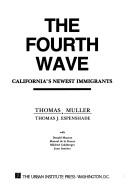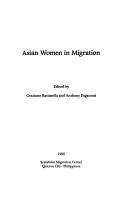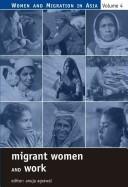| Listing 1 - 10 of 17 | << page >> |
Sort by
|
Book
ISBN: 9221067068 Year: 1989 Publisher: Geneva : International labour office,
Abstract | Keywords | Export | Availability | Bookmark
 Loading...
Loading...Choose an application
- Reference Manager
- EndNote
- RefWorks (Direct export to RefWorks)
Brain drain --- Emigrant remittances --- Foreign workers, Asian --- Foreign workers, Asian. --- Labor market

ISBN: 0877663491 Year: 1985 Publisher: Washington (D.C.) : Urban institute press,
Abstract | Keywords | Export | Availability | Bookmark
 Loading...
Loading...Choose an application
- Reference Manager
- EndNote
- RefWorks (Direct export to RefWorks)
Foreign workers, Asian --- Foreign workers, Mexican --- Immigrants --- History --- History --- History
Book
Year: 1992 Publisher: Tokyo, Japan United Nations University Press
Abstract | Keywords | Export | Availability | Bookmark
 Loading...
Loading...Choose an application
- Reference Manager
- EndNote
- RefWorks (Direct export to RefWorks)
Foreign workers, Asian --- Households --- Asia --- Emigration and immigration

ISBN: 9718789065 Year: 1996 Publisher: Quezon City Scalabrini migration center
Abstract | Keywords | Export | Availability | Bookmark
 Loading...
Loading...Choose an application
- Reference Manager
- EndNote
- RefWorks (Direct export to RefWorks)
Foreign workers, Asian --- Women foreign workers --- Women --- Employment --- Foreign countries
Book
ISBN: 0231508034 Year: 2005 Publisher: New York : Columbia University Press,
Abstract | Keywords | Export | Availability | Bookmark
 Loading...
Loading...Choose an application
- Reference Manager
- EndNote
- RefWorks (Direct export to RefWorks)
Many Latino and Chinese women who immigrated to New York City over the past several decades found work in the garment industry-an industry well known for both hiring immigrants and its harsh working conditions. In the 1990's, the garment industry was one of the largest immigrant employers in New York City and workers in Chinese- and Korean-owned factories produced 70 percent of all manufactured clothing in New York City. Based on extensive interviews with workers and employers, Margaret M. Chin offers a detailed and complex portrait of the work lives of Chinese and Latino garment workers. Chin, whose mother and aunts worked in Chinatown's garment industry, also explores how immigration status, family circumstances, ethnic relations, and gender affect the garment industry workplace. In turn, she analyzes how these factors affect whom employers hire and what wages and benefits are given to the employees. Chin's study contrasts the working conditions and hiring practices of Korean- and Chinese-owned factories. Her comparison of the two practices illuminates how ethnic ties both improve and hinder opportunities for immigrants. While both sectors take advantage of workers and are characterized by low wages and lax enforcement of safety regulations-there are crucial differences. In the Chinese sector, owners encourage employees, almost entirely female, to recruit new workers, especially friends and family. Though Chinese workers tend to be documented and unionized, this work arrangement allows owners to maintain a more paternalistic relationship with their employees. Gender also plays a major role in channeling women into the garment industry, as Chinese immigrants, particularly those with children, tend to maintain traditional gender roles in the workplace. Korean-owned shops, however, hire mostly undocumented Mexican and Ecuadorian workers, both male and female. These workers tend not to have children and are thus less tied to traditional gender roles. Unlike their Chinese counterparts, Korean employers hire workers on their own terms and would rather not allow current employees to influence their decisions. Chin's work also provides an overview of the history of the garment industry, examines immigration strategies, and concludes with a discussion of changes in the industry in the aftermath of 9/11.
Women clothing workers --- Clothing trade --- Foreign workers, Asian --- Foreign workers, Latin American --- History.
Book
ISBN: 9789774169564 9774169565 Year: 2020 Publisher: Cairo : American university in Cairo press,
Abstract | Keywords | Export | Availability | Bookmark
 Loading...
Loading...Choose an application
- Reference Manager
- EndNote
- RefWorks (Direct export to RefWorks)
Arabische Golf-Staaten. --- Arbeitsmigranten. --- Ausländischer Arbeitnehmer. --- Emigration and immigration. --- Foreign workers, Asian --- Foreign workers, Asian. --- Migrant labor --- Migrant labor. --- Arab countries --- Arab countries. --- Golfstaaten. --- Middle East --- Persian Gulf Region
Book
ISBN: 9781503609495 9781503609075 Year: 2019 Publisher: Stanford, California Stanford University Press
Abstract | Keywords | Export | Availability | Bookmark
 Loading...
Loading...Choose an application
- Reference Manager
- EndNote
- RefWorks (Direct export to RefWorks)
Foreign workers, Asian --- Foreign workers, Latin American --- Emigration and immigration law --- Abuse of --- Human trafficking --- Human trafficking victims --- Immigrants
Book
ISBN: 9280807949 Year: 1992 Publisher: Tokyo : United Nations University Press,
Abstract | Keywords | Export | Availability | Bookmark
 Loading...
Loading...Choose an application
- Reference Manager
- EndNote
- RefWorks (Direct export to RefWorks)
Foreign workers, Asian --- Households --- Travailleurs étrangers asiatiques --- Case studies. --- Case studies. --- Cas, Etudes de --- Asia --- Asie --- Emigration and immigration --- Case studies. --- Emigration et immigration --- Cas, Etudes de
Book
ISBN: 9888268112 9789888268115 9789888528332 9888528335 Year: 2020 Publisher: Hong Kong : Hong Kong University Press,
Abstract | Keywords | Export | Availability | Bookmark
 Loading...
Loading...Choose an application
- Reference Manager
- EndNote
- RefWorks (Direct export to RefWorks)
'Maid to Queer' discusses Asian female migrant workers who develop same-sex relationships in a host city. Based on participant observation and in-depth interviews with Indonesian domestic workers in Hong Kong, the book explores the meanings of same-sex relationships to these migrant women. Instead of searching for reasons to explain why they engage in a same-sex relationship, the book provides an ethnographic perspective by addressing their Sunday activities and considering how migration policies and the practices of Hong Kong people unintentionally produce alternative sexuality and desires for them.
Foreign workers, Indonesian --- Women foreign workers --- Lesbians --- Sexual orientation --- Foreign workers, Indonesian. --- Foreign workers, Asian --- Sexual minority women --- Social life and customs.

ISBN: 9352802640 9352805186 9789352805181 0761934561 076193457X 8178296063 8178296071 9780761934561 9780761934578 9788178296067 9788178296074 Year: 2006 Volume: 4 Publisher: New Delhi Thousand Oaks, Calif. London Sage Publications
Abstract | Keywords | Export | Availability | Bookmark
 Loading...
Loading...Choose an application
- Reference Manager
- EndNote
- RefWorks (Direct export to RefWorks)
Papers presented at the International Conference on Women and Migration in Asia, held at New Delhi in December 2003.
Women --- Foreign workers, Asian. --- Women migrant labor --- Migrant women labor --- Migrant women workers --- Women migrant workers --- Migrant labor --- Alien labor, Asian --- Asian foreign workers --- Human females --- Wimmin --- Woman --- Womon --- Womyn --- Females --- Human beings --- Femininity --- Employment --- Foreign workers, Asian --- Travailleuses migrantes --- Travailleurs étrangers asiatiques --- Femmes --- Travail à l'étranger
| Listing 1 - 10 of 17 | << page >> |
Sort by
|

 Search
Search Feedback
Feedback About UniCat
About UniCat  Help
Help News
News